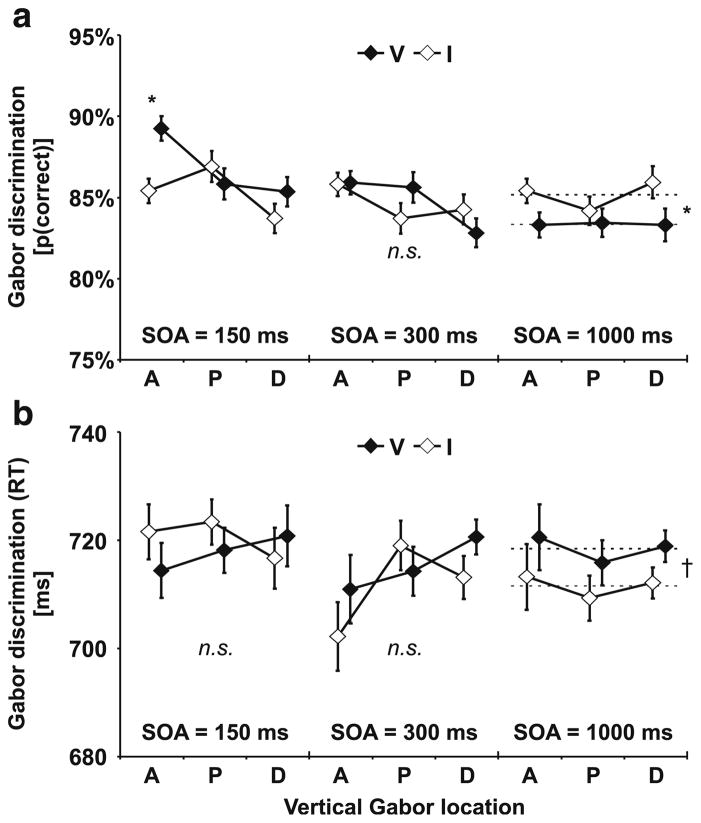Fig. 2.
Test results prior to training. a) Percentage correct Gabor discrimination. For the 150-ms stimulus onset asynchrony (SOA), Gabors were discriminated more correctly when preceded by valid (V) than by invalid (I) sound cues. This crossmodal facilitation was observed only at aligned (A) but not at proximal (P) or distal (D) locations. No significant (n.s.) differences emerged for the 300-ms SOA. For the 1,000-ms SOA, crossmodal inhibition was observed across all visual field locations (A, P, D). Dashed lines depict the mean across all aperture locations. See ANOVA results in text. b) No significant differences were observed on response times. However, response time differences tended to complement validity effects on percentage correct. Upper and lower visual field representations of proximal (P) and distal (D) apertures were averaged for illustrative purposes. They were separately analyzed in statistical tests (see text). Error bars reflect within-subjects SEM (Loftus & Masson, 1994) for the factor Validity. n = 12. * p ≤ .05. † p ≤ .10

